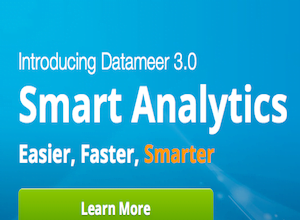Data is everywhere and it seems everyone these days is on a quest for data. Information is power and is treated as a valuable resource by most digitally-aware companies. According to Jaron Lanier, information is more important than physical labor.
Data is what allowed Google to launch Google Flight and become a dominant player in the Online Travel Agency market, overnight and without any prior experience in Travel. Data can literally make or break new business models. Data even gets presidents elected nowadays.
Data comes with a cacophony of buzzwords and tech concepts that can seem both convincing and confusing: big data, data warehouse, machine learning, RMDBs, cloud, meta-data, dark data.
But at its core, data is just information. It is stored in various databases and is structured. It can then be accessed … or lost forever. Some have value, some are worthless.
Hoteliers and Data
Hotel managers are not technology people and are perhaps less primed to be data aware. They are already painfully aware that their industry could be further disrupted by the likes of Airbnb and other big data players. In most cases, they have never accessed their data.
Hotel IT infrastructures are outdated and error-prone. They tend to rely on various legacy systems and databases that do not communicate with each other. The data this ecosystem produces tends to be unstructured. Any attempt at plugging an off-the-shelf BI tool would be futile without a large data warehouse upstream.
Hotels generate data, lots of data
At Boost-inn we sell software solutions to chains of hotels so we see a lot of hotels of different sizes with different operations, needs or even business models. However, all generate data. The first time we plugged Sisense OEM to an average-sized chain of hotels, we had a bit of a revelation.
A small chain of 12 regional hotels in France generated data on more than 50,000 reservations per year. This small chain had data on 50,000 credit card holders per year. Compared to a large online retail platform this may seem insignificant but hotels are not online retailers; they are traditional service providers with physical assets and as such rely on foot traffic.
Foot traffic with a digital footprint
50,000 people made reservations with their credit card over a 12-month period. These people traveled alone, as couples, as families, on vacation or on business. They ate at the hotels’ restaurants or preferred to go out, they made Spa reservations, booked additional concierge services, went to the bar etc.
It is a fact that hotels have lost control of the online booking battle. To some extent, they have surrendered the online customer interface to third party providers (OTAs). However, hotels have a marked advantage. It takes second to book a hotel online but guests typically spend anything between 12 hours and a few days on the premises.
Data helps hoteliers sell rooms and experiences
As always with data, the fun part starts when users can visualize it intuitively using hotel dashboards.
Revenue or Yield Managers are responsible for setting prices and achieving the best possible profit margins based on occupation rates and a variety of other fluctuating factors. They need live, accurate and wide-ranging data to make predictions and sell the most rooms and the best possible price. Data impacts the RevPar (Revenue Per Available Rooms); one of the key metrics for hoteliers.
Marketing officers armed with accurate data can launch marketing strategies that turn bookers into repeat business and impacts direct bookings. We have seen hotels make gains of up to 20% in direct bookings purely on the back of data.
Reservation Agents who are often the first point of contacts to guests can also use data to their advantage to create tailor-made experiences in the fly for their guests. Our clients claim this has led to an increase of between 20-30% of their positive reviews. In this case, data affects the hotels e-reputation.
We are at a turning point where hoteliers are increasingly seeing the direct and practical benefits of mastering their data. As they become more data fluent, hoteliers realize they can compete with OTA’s and players like Airbnb. They need not be disrupted so long as they adapt and innovate.









